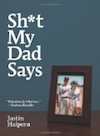smalltalk
December 3, 2010 17:34:21.968
Phillippe Marschall has just announced a new Seaside/Apache adaptor that makes Smalltalk plug in better:
The AJP adatpor is a server adaptor dedicated to connecting Seaside to Apache. You can't use it without Apache because it doesn't understand HTTP. Instead it uses the binary AJPv13 protocol which is more efficient and simpler to parse. The result is a lightweight adaptor without any external dependencies but Grease/Seaside. In the multipart parser special attention has been paid to avoid unnecessary copy operations. Streaming however is currently not supported.
Technorati Tags:
seaside, apache, AJP
posted by James Robertson
smalltalk
December 3, 2010 13:51:34.281
posted by James Robertson
smalltalk
December 2, 2010 6:29:55.892
ESUG 2011 will be held August 22-August 26 in Edinburgh, Scotland - the announcement just went up on the ESUG site.
Technorati Tags:
esug, scotland
posted by James Robertson
smalltalk
December 1, 2010 13:00:24.992
The NYSTUG meeting scheduled for tonight (December 1) has been moved to December 8 - check the website for details.
Technorati Tags:
nystug
posted by James Robertson
smalltalk
December 1, 2010 12:59:31.000
posted by James Robertson
smalltalk
November 29, 2010 19:44:12.258
You probably noticed the lack of posting since early this morning - I've been busy teaching an Intro to VisualWorks class via webcast. I'll be doing it all week, so posting is going to be intermittant the whole week.
It's actually working better than I expected - we're using Adobe Connect Pro to deliver the live presentation/demo to people - I have a second monitor up so that I can broadcast the demo screen, and keep the meeting chat room up on the second screen. The quality has been pretty good, and we've been using skype for two way conversations as needed (we haven't been able to get that to work in the Adobe tool).
The screen sharing has worked quite well - while it's not as good as being there, it's pretty good. I think this is the future of training that I'm seeing this week :)
Technorati Tags:
training, webcast
posted by James Robertson
smalltalk
November 29, 2010 6:34:29.000
I've seen this complaint about running Smalltalk app servers before, and I'm sure I'll see it again:
Running headless is a bear. Updating (e.g., loading the latest version of the web server or fixing a security vulnerability) a headless image on a remote server is very difficult (one has to either have a VNC session running in the image or save the image, copy it to a local machine, update it, copy it back, start it up again.)
Well.... not so much. I run a headless server here, and it's pretty easy - I have an image that loads what it needs when it starts up, and I can kill and restart anytime I want. For patching, I simply have a patch directory, and an interface that lets me "poke" the system and load whatever it finds in the patch directory. Since it will only load from there, and only when I tell it too (i.e., there's no code being loaded from an input field), it's secure enough for what I do.
I could automate that more if I felt like it; having a process periodically scan the patch dir, load whatever is there and then delete it would remove a manual step, for instance. The larger point is, patching a running server is easy, and it's one of the truly cool things about running a Smalltalk server.
Those patches vn be very invasive as well - some of the patches I loaded in the past (on the blog I ran at Cincom, which is an ancestor of this one) changed the shape of objects in the image on the fly.
So no, you don't need VNC, or a headful image. All you need is a little planning :)
Technorati Tags:
headless, server smalltalk
posted by James Robertson
smalltalk
November 28, 2010 18:02:14.342
posted by James Robertson
smalltalk
November 28, 2010 16:32:05.000
posted by James Robertson
smalltalk
November 27, 2010 16:22:47.000
Lukas has another highly descriptive post up on using his PetitParser:
In a previous post I described the basic principles of PetitParser and gave some introductory examples. In this blog post I am going to present a way to define more complicated grammars. We continue where we left off the last time, with the expression grammar.
Technorati Tags:
parser, grammar
posted by James Robertson




